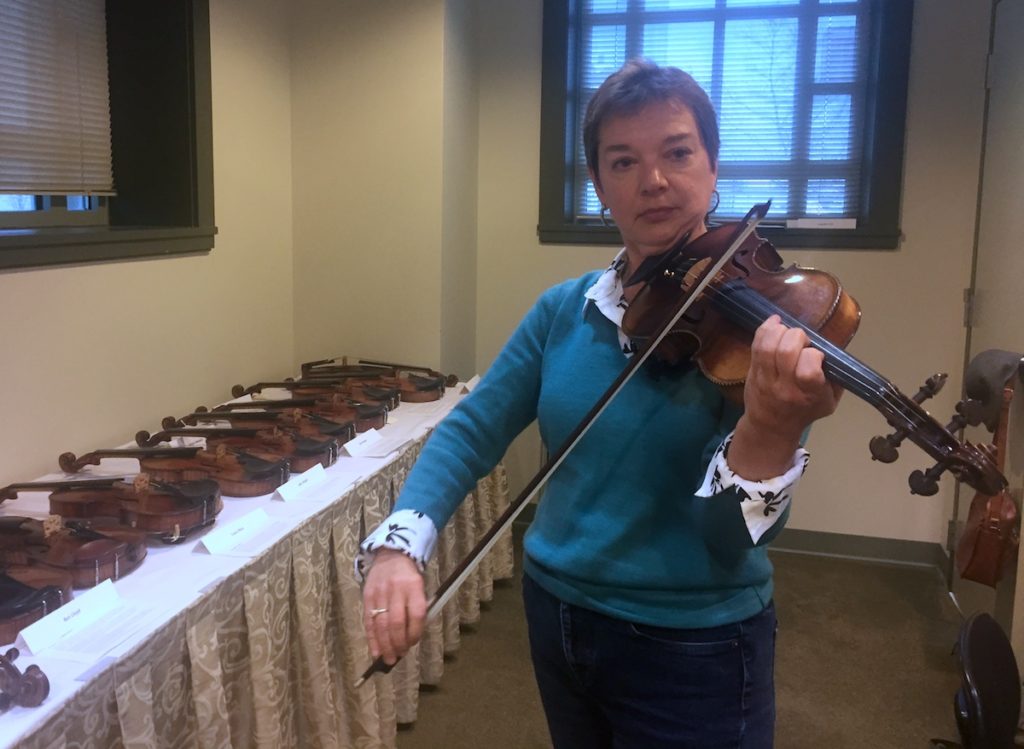
Players with the Nashville Symphony are giving up their personal instruments for a concert this weekend and instead playing what are called the Violins of Hope — a collection of about two dozen string instruments that were once owned by Jews who survived the Holocaust.
Kristi Seehafer has been playing the same violin for 26 years, so practicing for performance on a different one is challenging. The fingers on her left hand are dented with new callouses.
“It’s taking a lot more pressure to put the strings down, which is why my fingers look like this,” said Seehafer, a first violinist with the Nashville Symphony. “But I’m sure that by the end of the week, I’ll have it down. It’ll tell me what it wants to do, and I’ll do it.”
Seehafer is happy to work through the discomfort for what’s really a showpiece.
“It’s got an inlaid Star of David on the back, and some beautiful purfling here,” she said, pointing out the decorative, rope-like stripes that outline the front of the instrument.
This is one of the Violins of Hope, which have all been found and restored by Israeli luthier Avshi Weinstein and his family. Some belonged to Jewish musicians who fled Germany before the Holocaust and were eager to get rid of anything German-made, Weinstein said.
“Some of them came to my grandfather and they said something very simple. They said, ‘Either you buy it from us — this violin, viola, cello, bow, whatever — or we are going to break it to pieces.’ “
Other violins in the collection were played by prisoners in the concentration camps. Nazis would
sometimes create orchestras, either to entertain themselves or to deceive newcomers.
“There are stories about people who would arrive with the trains to a camp, after a week or two weeks squeezed in a cattle train with no food, no water, no air. And the first thing they would hear would be music. And they would think, ‘OK, there is music here, so how bad could it be?’ And of course they couldn’t even imagine,” Weinstein said.
He and his father have taken the hallowed instruments on tour around the world.
For their stop in Nashville, the symphony is playing a newly commissioned piece
on the violins. At least 25 community groups are putting on related events about the Holocaust or civil rights.
More:
Composer Jonathan Leshnoff on Jewish Spirituality, Tenacity and Writing for the Violins of Hope
The project can feel both universal but also extremely personal. For Seehafer, the history of the violin she chose wasn’t known, but it was dedicated to the memory of Jews massacred in Poland.
That realization felt almost eerie: Her own uncle had been an officer in Poland and was openly anti-Semitic, she told Weinstein.
“I just feel like I’m righting a wrong in so many ways. And the fact that I ended up with this, it’s just … wow,” she said.
“It’s a small world,” Weinstein said.
“Very small world.”


